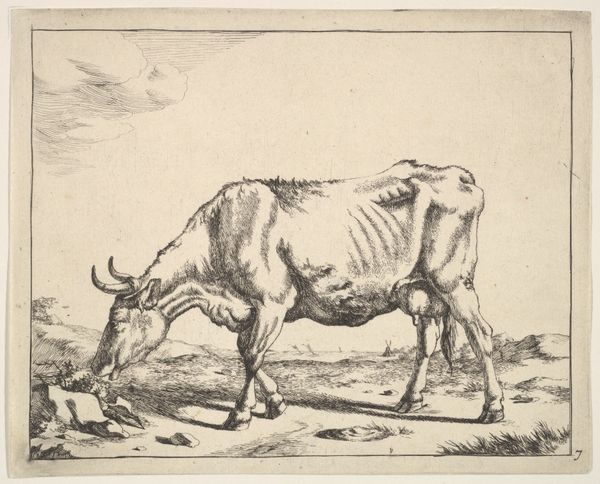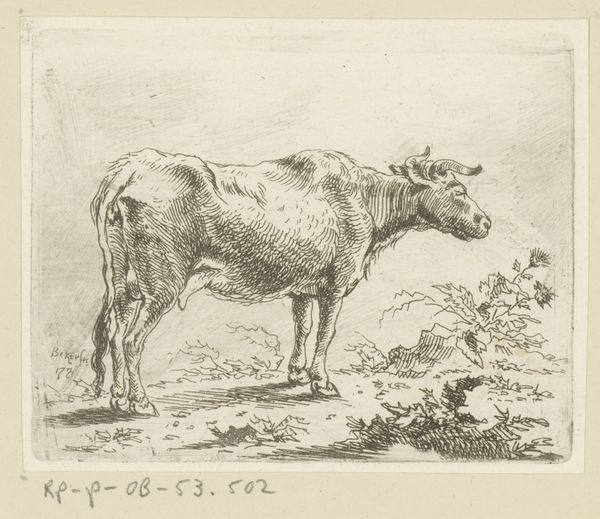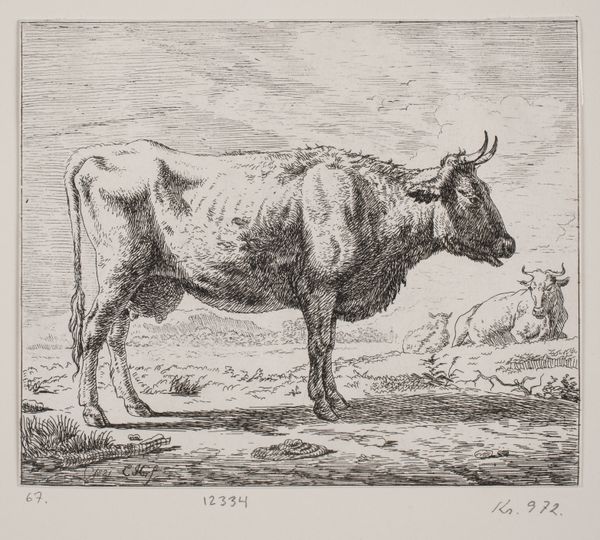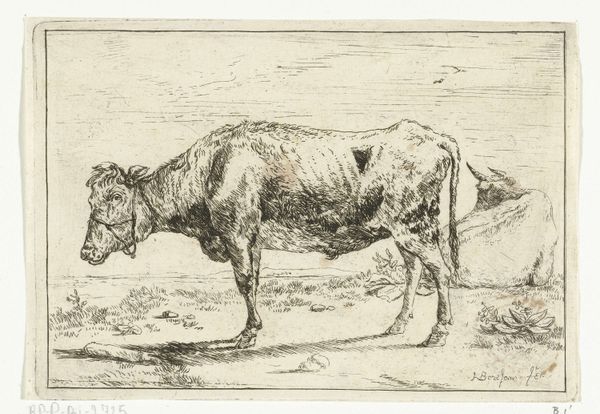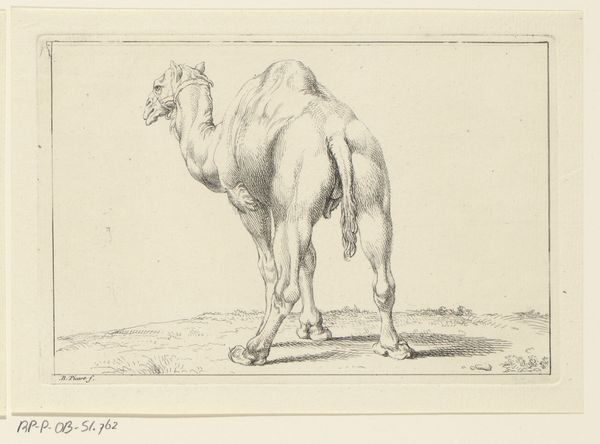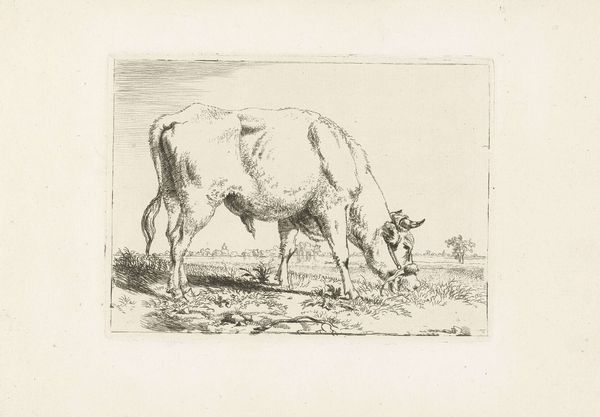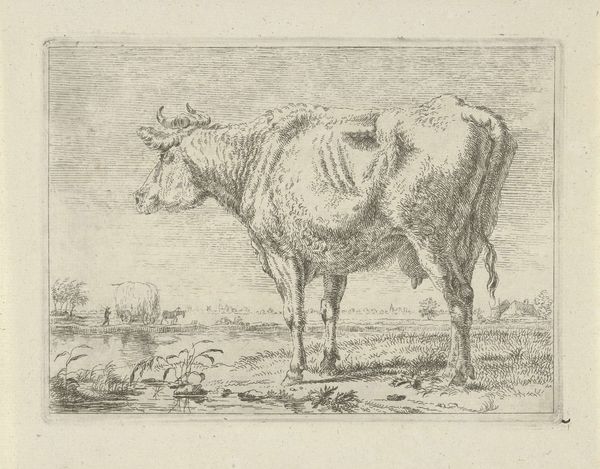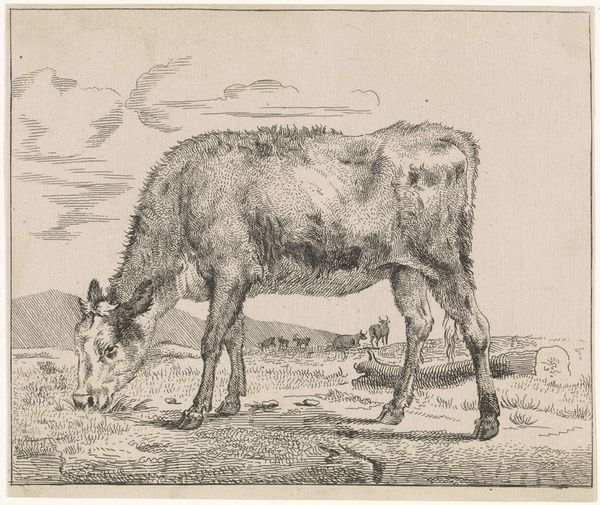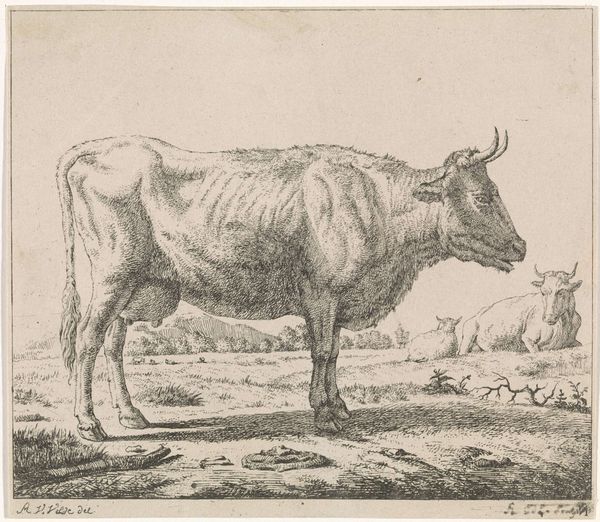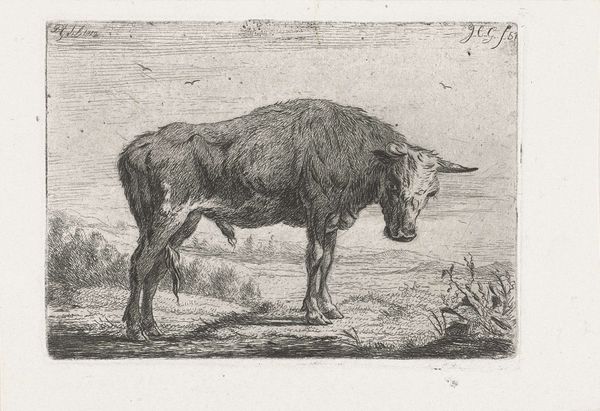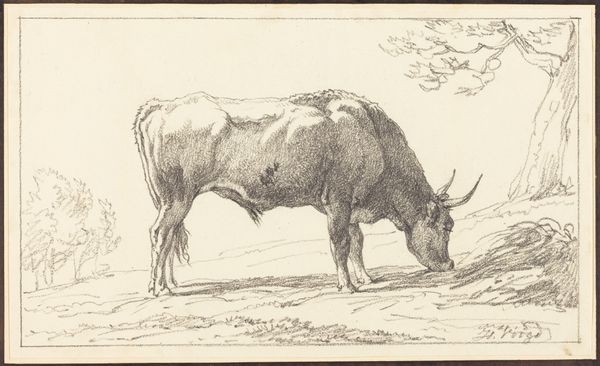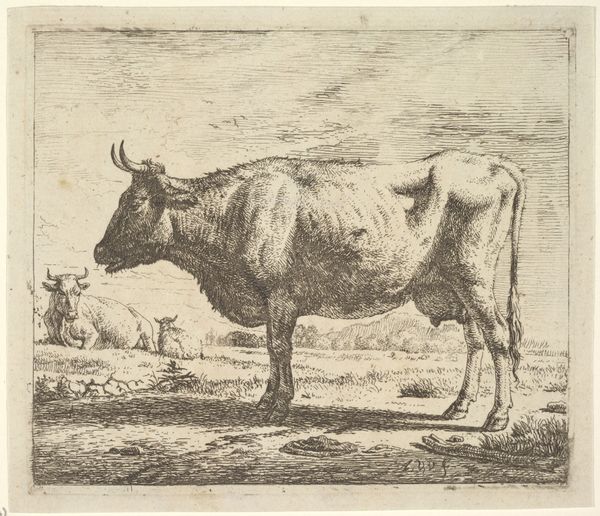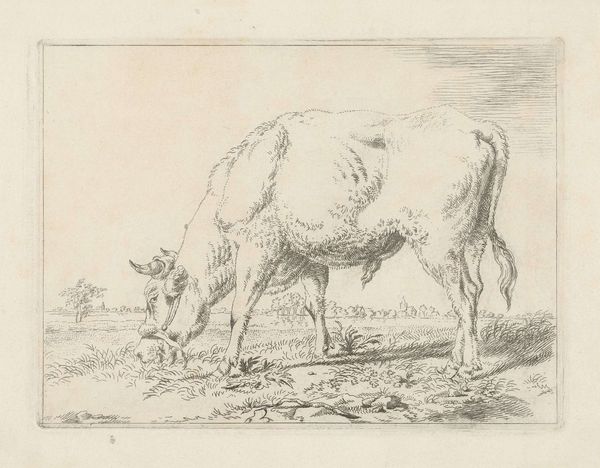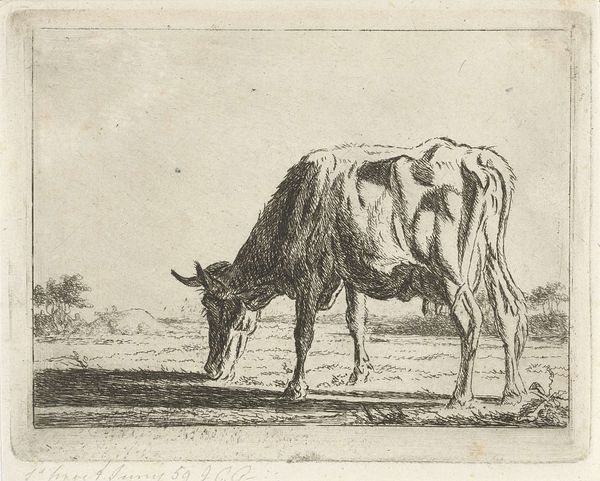
drawing, etching
#
drawing
#
animal
#
etching
#
landscape
#
pencil drawing
#
realism
Dimensions: height 152 mm, width 204 mm
Copyright: Rijks Museum: Open Domain
This print of a bull was made by Hendrik Willem Schweickhardt. The medium is etching, a printmaking technique that involves using acid to corrode lines into a metal plate, which is then inked and pressed onto paper. Now, etching is fascinating because of its indirectness. The artist doesn't directly carve the image. Instead, they draw through a waxy, acid-resistant ground. This process allows for a level of detail and nuance not easily achieved through direct engraving. Looking closely, you can see how Schweickhardt used a variety of lines – thin, thick, short, long – to create a sense of volume and texture. The choice of etching also speaks to the broader context of printmaking in the 18th century. It was a means of mass production. Prints circulated widely, disseminating images and ideas to a broad audience. While this particular image depicts a bull, a symbol of agrarian life, it also participates in a network of commerce and exchange. So, considering the materials and the making process, this print reveals the intersection of art, labor, and the burgeoning market economy of the time.
Comments
No comments
Be the first to comment and join the conversation on the ultimate creative platform.
